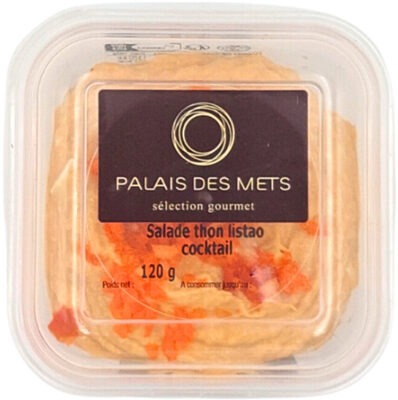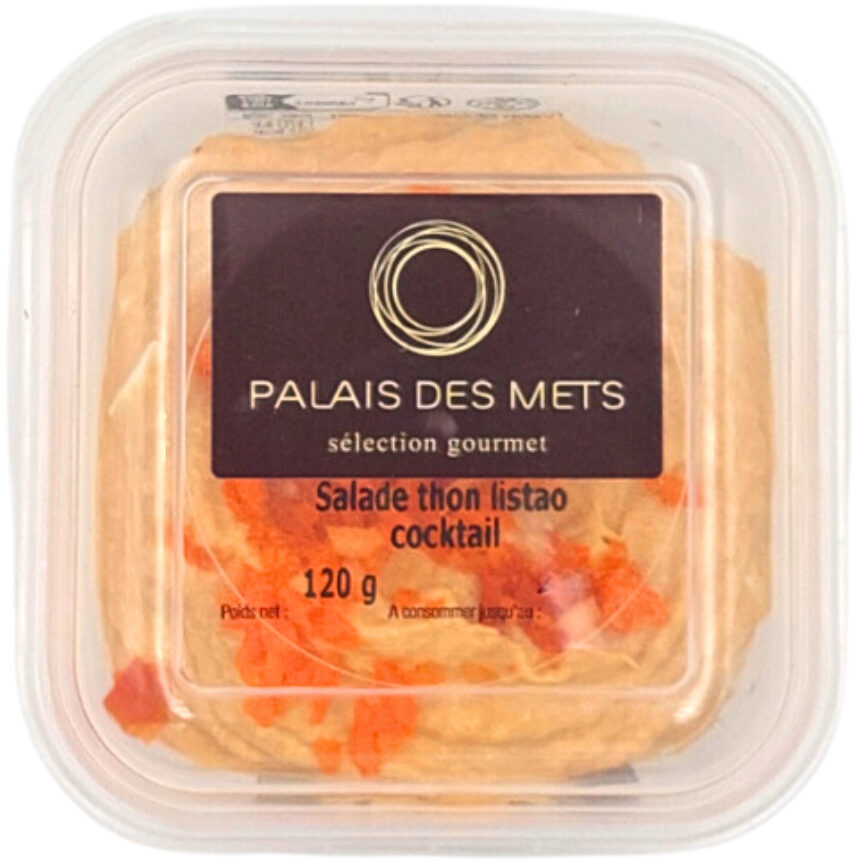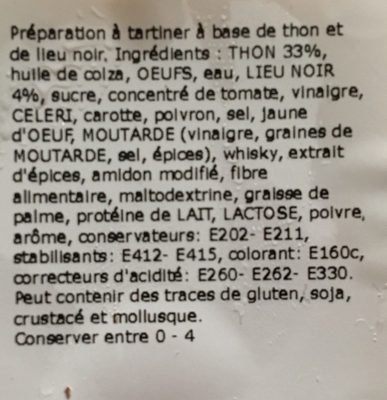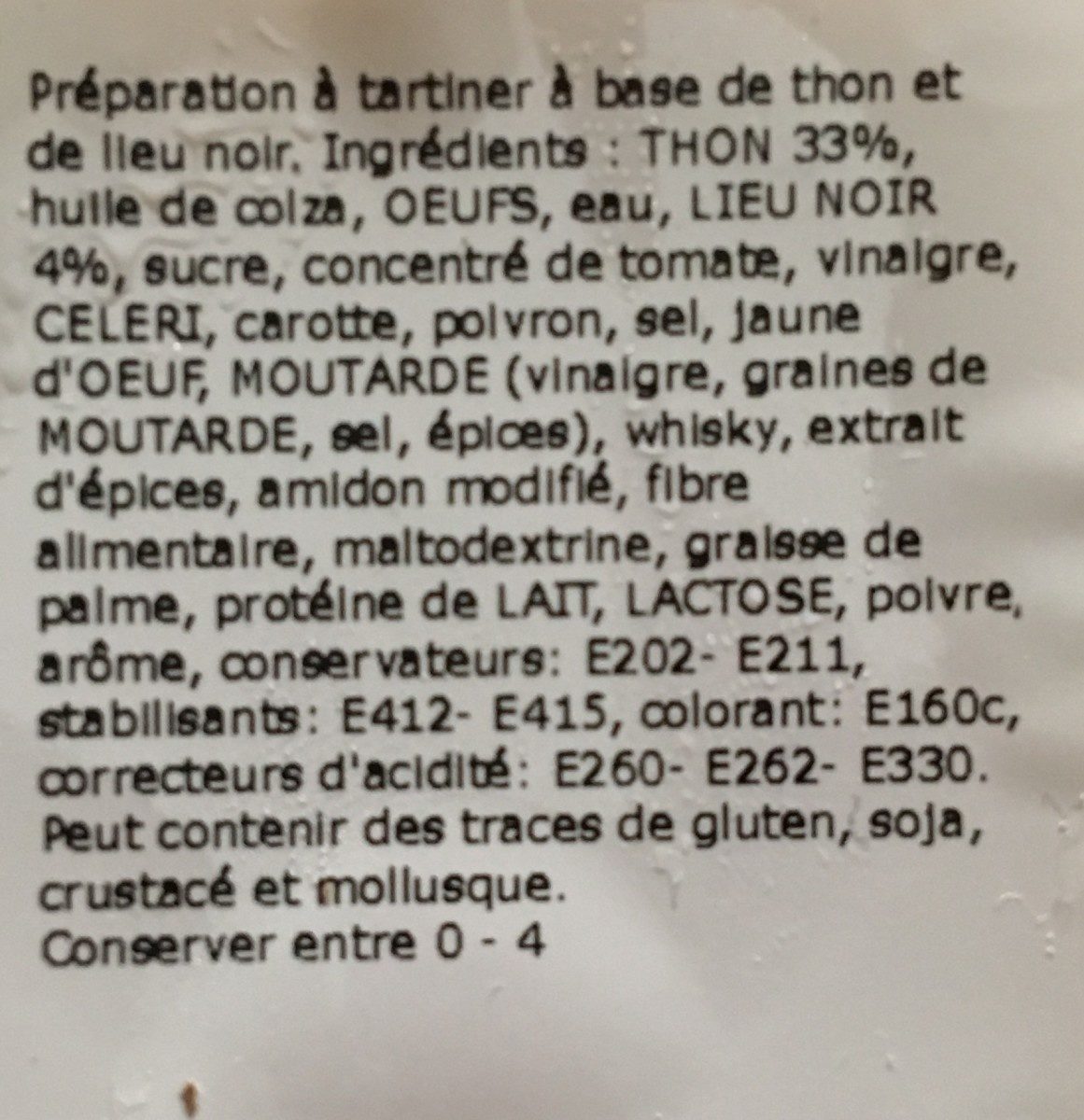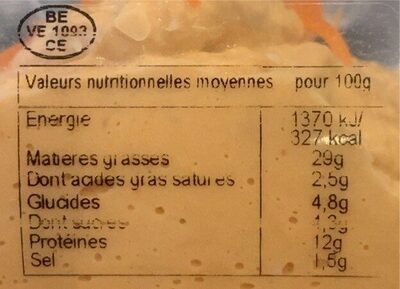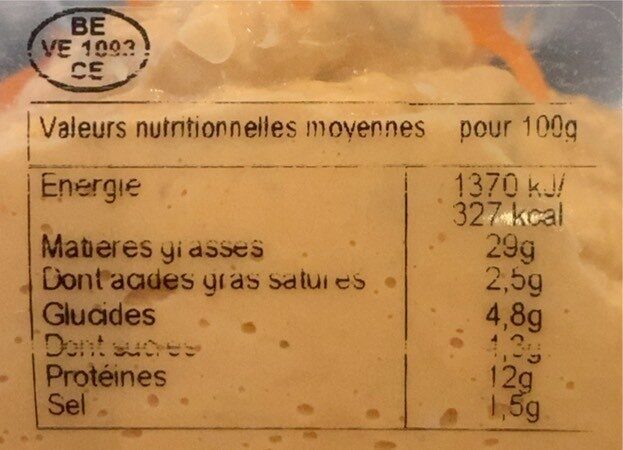Salade thon cocktail - Palais Des Mets - 120 g
This product page is not complete. You can help to complete it by editing it and adding more data from the photos we have, or by taking more photos using the app for Android or iPhone/iPad. Thank you!
×
Some of the data for this product has been provided directly by the manufacturer Palais Des Mets.
Barcode: 3760089333303 (EAN / EAN-13)
Quantity: 120 g
Brands: Palais Des Mets
Categories: Seafood, Fishes and their products, Fishes, Spreads, Fish preparations, Fish spreads, Tuna spreads
Stores: carrefour.fr
Countries where sold: France
Matching with your preferences
Environment
Packaging
Transportation
Threatened species
Report a problem
Data sources
Product added on by kiliweb
Last edit of product page on by org-palais-des-mets.
Product page also edited by anton2, cecilia94, driveoff, moon-rabbit, openfoodfacts-contributors, yuka.UWEwaEtyVW9uZHd3c1BjbjBEZU94c2hwMlllYkFXK1dNOGtWSWc9PQ, yuka.V0xreUthY3RnZUVobmZBZTBoZk14c0IweW9hN1gzS1FMK2s0SUE9PQ, yuka.sY2b0xO6T85zoF3NwEKvlmNNUYTlpAjmOTjgvWShwvfRdaXOS-1KutT1M6g, yuka.sY2b0xO6T85zoF3NwEKvln1EfsX8hyPBEQDgtBeRwo-8Nc3mas1y2LbaD6s.
